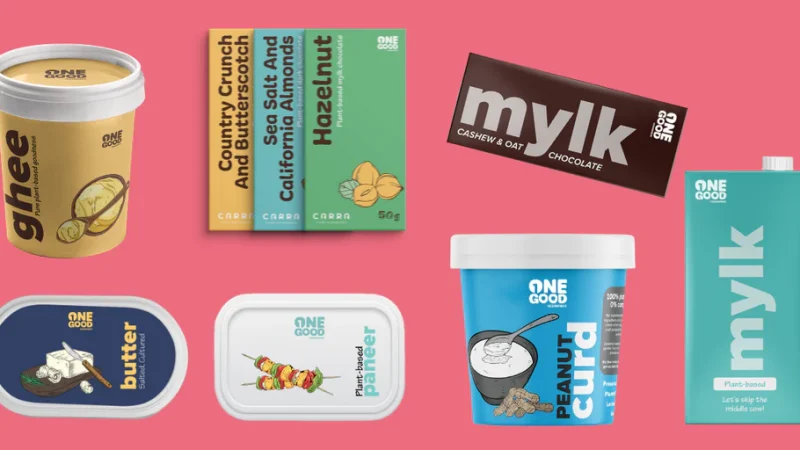In a world increasingly conscious of ethical and sustainable living, the demand for products vegan is on the rise. Whether it’s food, cosmetics, clothing, or household items, vegan products offer cruelty-free and eco-friendly alternatives that align with a compassionate lifestyle.
But what exactly does “vegan” mean when it comes to products? How can you identify them, and why should you choose them? This article will explore the world of vegan products, their benefits, and tips for integrating them into your daily life.
What Are Products Vegan?
Vegan products are those that are free from any animal-derived ingredients and are not tested on animals. They cater to the needs of individuals who want to avoid contributing to animal exploitation and environmental harm.
Key Characteristics of Vegan Products
- No Animal Ingredients: Excludes meat, dairy, eggs, honey, silk, wool, leather, or any other animal-derived components.
- Cruelty-Free: Not tested on animals during the production process.
- Sustainable: Many vegan products emphasize environmentally friendly practices and materials.
Categories of Vegan Products
Vegan Food Products
- Description: Foods free from animal ingredients, including meat, dairy, eggs, and honey.
- Examples:
- Plant-based milks (almond, soy, oat).
- Meat substitutes (tofu, seitan, jackfruit).
- Vegan snacks and desserts (dairy-free ice creams, cookies).
Vegan Beauty and Skincare Products
- Description: Cosmetics and skincare items made without animal-derived ingredients or testing.
- Examples:
- Vegan lipsticks, foundations, and mascaras.
- Cruelty-free moisturizers and serums.
Vegan Fashion
- Description: Clothing, shoes, and accessories made without leather, wool, silk, or fur.
- Examples:
- Faux leather jackets.
- Vegan suede shoes.
- Plant-based fabrics like organic cotton or hemp.
Vegan Household Products
- Description: Cleaning supplies and household items that are cruelty-free and eco-friendly.
- Examples:
- Plant-based laundry detergents.
- Vegan candles made from soy or coconut wax.
Benefits of Choosing Vegan Products
Ethical Living
- Vegan products promote compassion by eliminating animal cruelty from the production process.
Environmental Sustainability
- Vegan products typically have a smaller ecological footprint, conserving resources like water and reducing greenhouse gas emissions.
Health Benefits
- Many vegan foods and skincare products are made with natural, plant-based ingredients that are beneficial for health and well-being.
Supporting Ethical Brands
- Choosing vegan products encourages businesses to adopt cruelty-free and sustainable practices.
How to Identify Vegan Products
Check Labels
- Look for certifications like:
- Vegan Society Trademark.
- Leaping Bunny (cruelty-free certification).
- PETA-Approved Vegan.
Review Ingredients
- Avoid products containing animal-derived ingredients like gelatin, beeswax, carmine, or lanolin.
Research Brands
- Support brands known for their commitment to vegan and cruelty-free practices.
Look for “Cruelty-Free” and “Vegan” Claims
- Many products explicitly state if they are vegan or cruelty-free on their packaging.
Challenges of Finding Vegan Products
Misleading Labels
- Terms like “natural” or “organic” don’t necessarily mean vegan—always verify the ingredients and certifications.
Limited Availability
- While vegan options are growing, they may still be harder to find in certain regions or stores.
Higher Costs
- Some vegan products may have a higher price point due to ethical sourcing and sustainable practices.
Popular Vegan Brands to Explore
Food
- Beyond Meat: Plant-based meat alternatives.
- Oatly: Popular oat milk brand.
Beauty and Skincare
- The Ordinary: Vegan and cruelty-free skincare.
- E.L.F Cosmetics: Affordable vegan makeup products.
Fashion
- Matt & Nat: Vegan bags and accessories.
- Veja: Vegan sneakers made from sustainable materials.
Household
- Method: Plant-based cleaning products.
- Seventh Generation: Eco-friendly laundry and cleaning solutions.
Tips for Incorporating Vegan Products
- Start Small: Replace one category at a time, like switching to vegan skincare or plant-based milk.
- Experiment with Brands: Try different vegan brands to find products that work for you.
- Educate Yourself: Stay informed about ethical and sustainable practices.
- Shop Locally: Support local stores or markets that offer vegan options.
Conclusion
Adopting vegan products is not just a trend—it’s a commitment to ethical, sustainable, and compassionate living. From food to fashion and beauty, these products empower individuals to make choices that benefit animals, the environment, and their own health.
By understanding what vegan products are, their benefits, and how to identify them, you can confidently transition to a lifestyle that aligns with your values.
Ready to make the switch? Explore the growing world of vegan products and transform your lifestyle today!
FAQs
1. What does “vegan” mean for products?
Vegan products are free from animal-derived ingredients and are not tested on animals.
2. Are vegan products always cruelty-free?
Most vegan products are cruelty-free, but it’s essential to check for certifications to confirm no animal testing was involved.
3. Why do vegan products cost more?
Higher costs often result from ethical sourcing, sustainable practices, and smaller production scales.
4. Can non-vegans use vegan products?
Absolutely! Vegan products are for anyone seeking cruelty-free, eco-friendly, and sustainable options.
5. Are vegan and organic products the same?
No, vegan refers to the absence of animal ingredients, while organic refers to how ingredients are grown and processed.
Also read: Missha Time: The Key to Timeless Beauty





